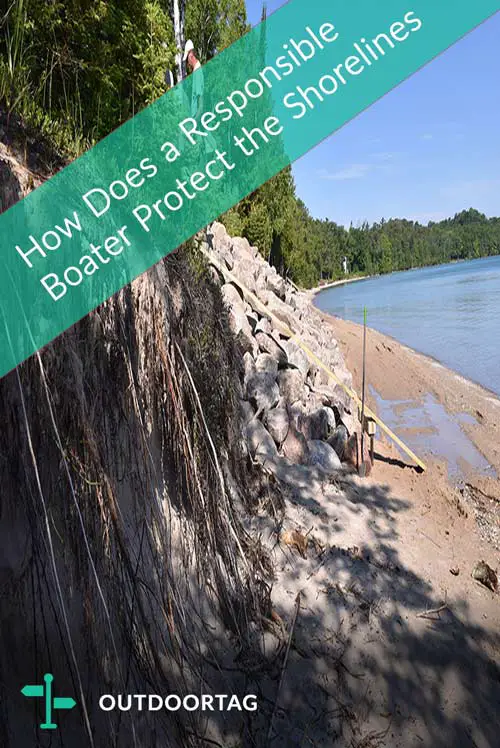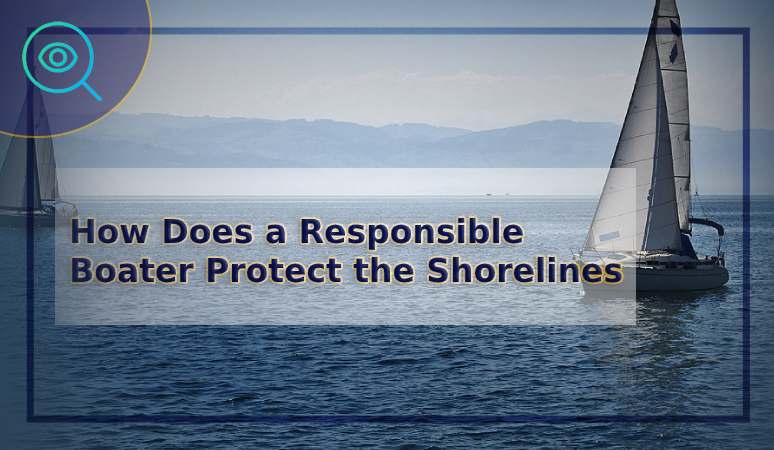The life of a boater includes many fun parts. It’s about having a fun cruise with family and friends. It’s a great opportunity for amazing competing watersports. You get to enjoy various outdoors.
However, there’s also another side of this whole boat part that does not mean all fun but you need to be serious about it. And that’s regarding your responsibility of being a boater. It’s very important that your aware of how you can avoid causing harm to the environment while boating. So that others who share the same passion for boating, can feel safe and relieved around you in the water.
So, how does a responsible boater protect the shoreline, and what duties are important for you to follow & respect as one? Let’s talk more about that…
How Does a Responsible Boater Protect the Shorelines & Follow Responsibilities?
We’ll be talking about the most common matters that you should be religiously following after being the proud owner of a boat.

1. The Very Basic Responsibilities.
Depending on what type of boat you are using, there should be some guidelines on waterways. Only go on the waterways that are meant for your boat type. You also should ensure that there’s enough life vest for every passenger riding your boat. Make sure these vests are coast guard approved and not just any random unsafe ones.
While operating boat, make sure the speed is safe. Keep someone with you who can act as a lookout. They will have a watch on objects, swimmers and boaters. So that you can play it extra safe. Also, never mix alcohol or drugs with boating activities.
You also need to be careful with balancing the load inside your boat. The trailer needs to be working properly. People who are on or around the water are also deserving of your consideration. When you are near the shore, make sure you’re keeping noise at a low level. In boat ramp areas, you need to show some courtesy to other boaters. You need to make the process of launching and retrieving quicker for them to have their chance.
2. Get Some Knowledge of Proper Boating Safety.
Once you are done buying a boat, make sure to educate yourself more about all possible rules and regulations of operating. It’s best to enroll in a boat safety course to make sure you have the right education to go out in water.
Knowing how to operate the boat safely along with a clear idea of navigation as well as communication equipment is a must. You need to be aware of signals for distress as well as symbols for warning. In some cases, there can be a matter of area restrictions or permit needs. Make sure you have a proper destination chart idea to get help in planning the trip.
You also need to make someone aware of your travel plans. Don’t forget about filing a flat plan too. Before launching, you need to check the weather forecast as well. So that you can start with enough fuel and oil to cover the whole trip.
3. Know Which Areas to Avoid.
Launching from a designated boat ramp is very important, make sure you are following that. There can be severe damage and erosion issues if you back up your vehicle on a lakeshore or riverbank. So, it’s important to pay attention to it.
Make sure you are not boating in an area that is less than 2.5 feet deep. In shallow wares, you should be traveling at a slow pace. If you use high speeds near shore, then this will lead to a huge wake.
And that will be bad news for the shoreline because of erosion. Sites that are archeological, paleontological, or historical should never be disturbed by your boating. You should also not enter seasonable breeding or nesting areas.
4. Care About the Environment.
Whatever that you placed in, also needs to be out. Make sure you properly dispose of the waste, oil, and fuel. Carrying a trash bag is a good idea. So that you can gather the leftover litter. While fueling the boat, don’t make unnecessary spills on water. You can keep a spill kit to avoid those. It should include socks and pads that are good at absorbing.
However, if a mishap becomes unavoidable, make sure you follow the proper protocol. If you ever come across a spill that resulted in sheen or sludge, make sure to report about it.
There’s a good chance of spreading invasive species from your gear, tow vehicle, and watercraft. So, you should wash all your belongings before and after the trip. Make sure you get rid of all plant material. On garbage containers, simply dispose of those dry.
5. Be Responsible with Sharing the Water.
You are free to enjoy boating, fishing, and any sort of water activity. But keep in mind that others also have that same right. When you are exploring the shoreline, make sure you are not making trouble for others who also desire same. A responsible boater will always be enough mindful of nearer people to maintain a friendly aquatic environment.
6. Following Water Traffic Rules.
When you are approaching the other boats, make sure to keep your speed under safety requirements. Allow the non-motorized vessels to go first to keep a balance. When you are making a cross of the path, keep in mind that right-side vessel will decide its way first. Such rules of passing and letting to pass are important to maintain and you must never disobey them.
Also Read: 5 Reasons on Why Are Boats So Expensive
Wrap Up.
The matter of how does a responsible boater protect the shoreline and keep up with his or her responsibilities without making a mistake is also something that comes with experience. Being on the water for a long time will lead you to learn, understand, and maintain all safety, courtesy, and general rules better. So, don’t feel burdened about the responsibilities. You will very well cope with them with passing time and get yourself some wonderful boating moments.

